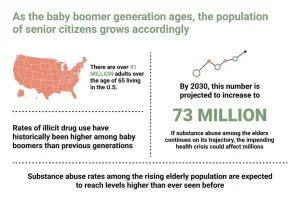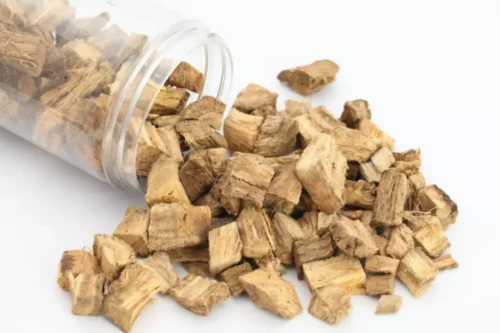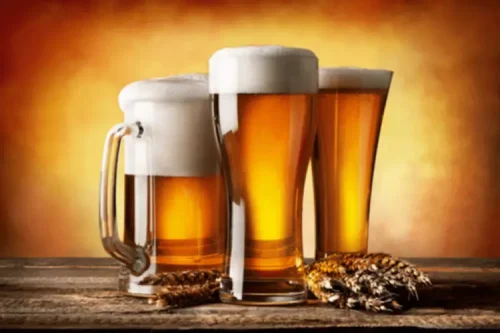Substance Use and Co-Occurring Mental Disorders National Institute of Mental Health NIMH

Similar results have been generated from some, but not all, studies of alcoholism in relatives of patients with severe anxiety disorders. Nor did a review of several recent studies by Fyer and colleagues1 and Noyes and colleagues1 reveal high rates of alcoholism in relatives of people with social phobia or other anxiety disorders (Schuckit and Hesselbrock 1994). Certain theories give rise to the expectation that alcoholics might have high rates of long-term, independent anxiety and depressive disorders (Wilson 1988). Perhaps as a result of the influence of these theories, psychotherapists frequently reported deep-seated emotional difficulties or persisting psychiatric symptoms in alcoholics, even when alcohol-dependent people were sober. Once a person becomes deeply depressed, regardless of the cause, he or she may need to be hospitalized and provided with the appropriate precautions against suicide. These steps should be considered even if the patient’s depressive disorder is a relatively short-lived alcohol-induced state.
When to see a doctor

It helps people understand events and thought processes that lead to depression and substance misuse. During therapy, you can learn coping alcohol and depression mechanisms that can help you return to life without drinking. However, for the best results, your doctor will likely treat them together.
Prevalence of depressive disorders and AUD
On the other hand, both conditions also share certain risk factors, such as genetics and social isolation. Having either depression or alcohol use disorder increases your risk of developing the other condition. “An experienced psychiatrist [or another mental health professional] familiar with mood disorders and the effects of alcohol abuse can be instrumental in recommending appropriate medications and monitoring medication efficacy,” says Kennedy. Major depressive disorder involves persistent and prolonged symptoms, but depression, in general, takes on many different forms. Depressive symptoms can result from life stressors, mental health conditions, medical conditions, and other factors. Alcohol abuse and dependence are both considered an alcohol use disorder, with studies finding that alcohol dependence is more closely tied to the persistence of depressive disorders.
- You might consider joining a 12-step program like Alcoholics Anonymous (AA) or a non-12-step group like SMART recovery.
- If the holiday season passes and you’re still feeling depressed or anxious, talk to your doctor or a mental health professional to determine if what you are experiencing is a more significant mood disorder.
- However, drinking alcohol to improve your mood can still put you at risk for developing AUD.
- His theories have changed the field, stimulated additional research, and led to new understanding and treatments for opioid use disorders, cocaine use disorders, overeating, smoking, and depression.
Online Therapy
As shown in the schematic, AUD and other mental health disorders occur across a spectrum from lower to higher levels of severity. For patients in the middle, with up to a moderate level of severity of AUD or the psychiatric disorder or both, a decision to refer should be based on the level of comfort and clinical judgment of the provider. Here, we briefly describe the causes and effects of co-occurrence, the mental health disorders that commonly co-occur with AUD, and the treatment implications for primary care and other healthcare professionals. We start with a visual model of care that indicates when to consider a referral. Treatment approaches have improved significantly over the years for treating both depressive disorders as well as alcohol use disorders. When alcohol is used, these chemical balances are significantly impacted, which may result in poor decision-making.
Does Depression Drive You to Drink Alcohol?
- People using other drugs or who use nontraditional antidepressants should be especially mindful of drinking.
- Drinking a lot may worsen these feelings, which may actually drive further drinking.
- Among people with co-occurring AUD and psychiatric disorders, AUD remains undertreated, leading to poorer control of psychiatric symptoms and worse outcomes.
- Find out how NIMH engages a range of stakeholder organizations as part of its efforts to ensure the greatest public health impact of the research we support.
- Research has repetitively demonstrated that including daily mindfulness in one’s life can help with treating a wide array of health conditions, including depression and alcohol use.
- Additionally, one may consider visiting the SAMHSA treatment locator to search for programs by zip code.
- Research from 2013 also supports the link between alcohol use and self-harm.
AUD treatment failures are more likely when we do not treat comorbidities. Further research on neuromodulation (TMS), ketamine, psychedelics, and GLP-1 receptor agonists may increase patient and physician interest in AUD treatment. Research has found several behavioral therapies that have promise for treating individuals with co-occurring substance use and mental disorders. Health care providers may recommend behavioral therapies alone or in combination https://ecosoberhouse.com/ with medications. As with anxiety and mood disorders, it can help for a healthcare professional to create a timeline with the patient to clarify the sequence of the traumatic event(s), the onset of PTSD symptoms, and heavy alcohol use. One way to differentiate PTSD from autonomic hyperactivity caused by alcohol withdrawal is to ask whether the patient has distinct physiological reactions to things that resemble the traumatic event.
- This content mentions substance abuse or addiction (which may include mentions of alcohol or drug use), suicide or suicidal thoughts, self-harm, depression and anxiety.
- A 2011 analysis found a correlation between using alcohol before the age of 13 and later engaging in self-harm.
Use these free education and outreach materials in your community and on social media to spread the word about mental health and related topics. NIMH offers expert-reviewed information on mental disorders and a range of topics. If you’re physically dependent on alcohol and need to stop drinking completely, stopping suddenly could be harmful. Your GP can give you advice and/or medication to help you do this safely.
- The disorder often develops when individuals are in either their twenties or thirties.
- A treatment provider may also prescribe an antidepressant to balance mood swings and other symptoms of depression.
- It can be challenging to make an accurate diagnosis because some symptoms are the same for both disorders, so the provider should use comprehensive assessment tools to reduce the chance of a missed diagnosis and provide the right treatment.
- For example, AUD that develops after the onset of a depressive disorder and is characterized by coping motives for alcohol use may differ critically from a depressive disorder that develops following chronic alcohol administration.
- Some people may feel unsure about seeing a doctor, but the right treatment can ease symptoms and help a person live a better, happier life.
Depression is a common and serious mood disorder, which can impact your thoughts, feelings, and behaviors. In the United States alone, an estimated 17.3 million adults have had at least one major depressive episode. The most common symptom of holiday depression is a persistent or recurring feeling of sadness that begins during the holiday season. Some people might feel down periodically but experience brief periods of relief. Clinical trials are research studies that look at new ways to prevent, detect, or treat diseases and conditions.

Getting help if you’re worried about your drinking

Recent Comments